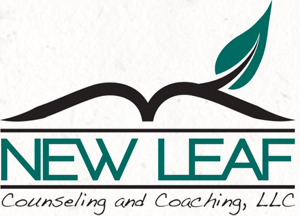How do I get started?
Whether you are seeking help for yourself, a loved one, both, or more, it all begins with a phone call or email exchange. You may reach out to me by calling the number at the top or bottom right of the screen. (Please leave a message, as I am frequently unable to answer.) Or you may email me at the address shown in the same places. Both voice and email are accessible only to me, so are confidential. I will return your call or email as quickly as I am able or within one of the windows of time that you may suggest.
Where are you located?
I live on the far east side of Indianapolis and have a home-office there for business purposes. I see clients in an office that I rent one day a week at:
Shelby Psychological Services
45 W Washington St.
Shelbyville, IN 46226
And, I am able to use an office at:
Progress House’s Next Step
2456 N Bolton Ave
Indianapolis, IN 46218
…about any time I want.
But, I’m also willing to come to you for counseling at your home or office, if that would be helpful and you are comfortable with it. Further, I offer counseling and recovery coaching via a secure video conferencing service if you’d like to give that a try.
Similarly, I come to you for interventions, at a place that is convenient to you and the recovery support network of family and friends that you will assemble on behalf of your loved one. Follow-up continuing care meetings can be attended in person or via video or conference call. While the distance that I’m willing to travel for interventions is much greater than for counseling, if we are very far from each other, say more than 150 miles, I may suggest another interventionist closer to you.
Do you take my insurance?
Probably not, unless it is the small company in Shelbyville that I signed up with to give insurance a try. I may try some of the major companies later on and update this page. However, I can give you what is called a “Superbill” by the insurance industry that you may submit to your insurance company on your own for reimbursement. Also, please know that at their present stage of development, it would be the rare insurance policy that would cover an intervention.
Do you have evening hours or work on Saturdays?
Yes. Presently, as I’m also employed part-time at a couple of other agencies, I’m keeping everything very flexible and scheduling about whenever works for both of us. Plus, if you are interested in give counseling by secure video conferencing a try, that opens up all kinds of possibilities! Other than for interventions, I do reserve Sundays for my own health and sanity.
FAQs Regarding Addiction and Recovery
Doesn’t someone have to “reach their bottom” before they will accept help?
Not necessarily. I’ve always like the concept of, “bringing the bottom up to them.” A family doesn’t have to sit idly by and wait for enough bad stuff to happen that it serves as the wakeup call—getting the person’s attention enough such that they seek something different for themselves. The family or even a lone individual can decide that they have “had enough” and begin to make some changes for themselves and/or seek to intervene in their loved one’s self-destruction. When a spouse, sibling, parent, child, friend, or even an employer, starts making changes in their behavior, for their own good, they tend to, or at least eventually, stop enabling their loved one to stay in denial about their problem.
What is “denial”?
Foregoing the clichéd joke about a river in Egypt, denial is a psychological mechanism to protect an individual from having to swallow the whole ugly truth about something, all in one gulp. Denial helps us get used to a new reality slowly—to wade in, when a plunge into the deep end would be too shocking to the system. It is a useful thing. But, like so many things in the case of addiction, the diseased brain uses that mechanism for ill purposes, namely to allow a otherwise obviously dangerous and/or self-destructive behavior to continue.
What is “enabling”?
Any behavior or response to a problem caused by the addiction that allows the addicted individual to avoid the natural consequences of their choices. All enabling is born of love and begins as a want to protect a loved one from harm. But, addiction distorts even those good intentions and turns them into something that actually perpetuates the problem. Plus, family members of addicted individuals usually have, sometimes over a long period of time, developed coping strategies to ease their own discomfort around the addiction, that eventually, much to the perplexity, consternation, and chagrin of the family, also come to serve to perpetuate the addiction in their loved one.
What? Are you saying that this is my fault?!!
Certainly not. You have simply been sucked down the seemingly unavoidable vortex that your loved one has. That is part of why you’ll frequently hear it said that “addiction is a family disease”, which is a complex statement in itself—whole books about have been written about it. Addiction affects the whole family. It makes everyone sick and makes them behave in ways other than they would have.
You used the word, “choices”, above. Isn’t that what addiction all boils down to—that addicts make a choice; that they choose their drug or behavior over everything else that might have, at one time, been important to them? Isn’t it all simply selfishness?
Yes, in the beginning, many people choose to use drug(s) or engage in behavior(s) that later turn into unhealthy, destructive habits: because it feels good, or helps them cope with something in their lives that is causing them discomfort, or is simply fun. But not always. Sometimes people become addicted to medications that, in the beginning, where legitimately prescribed, but that begin to morph into a new problem all their own, often without the individual being aware that anything is happening to them, until it’s too late and they find themselves caught in the addictive cycle. And, yes, addicted individuals end up behaving very selfishly, even if their former selves would be appalled by their behavior now. Often, the addicted individual is only all too painfully aware of how they’ve changed and behave selfishly, and the guilt and shame that comes with that realization becomes a reenforcement factor in the relief-seeking behavior.
But, in very real ways, having to do with the way the addicted individual’s brain was predisposed or has responded to the drug or behavior, a person suffering with addiction has lost their ability to make rational choices where the drug or behavior is concerned. Addiction is a disease of choice—the addicted one’s ability to choose has become compromised – their “chooser” is broken.



